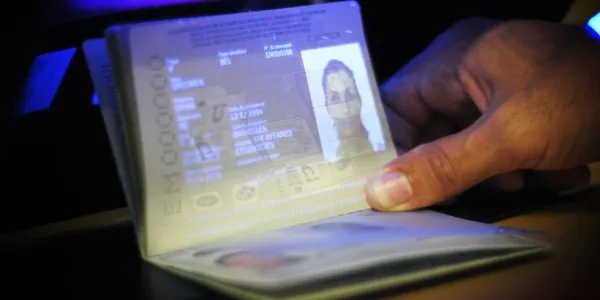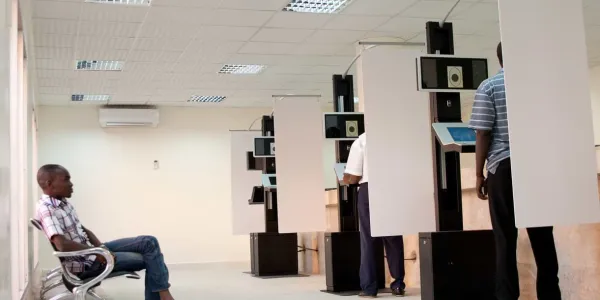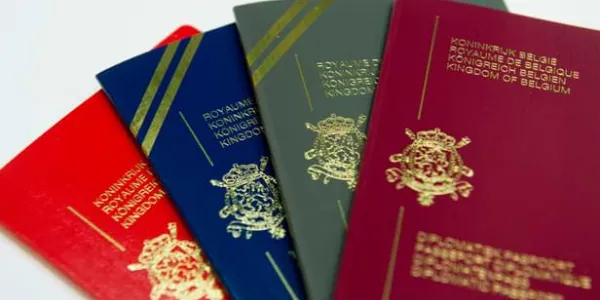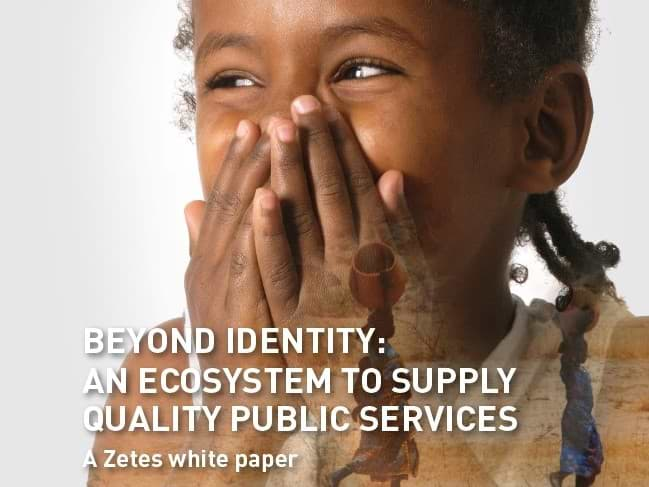With the Belgian government looking for a new supplier to personalise its electronic passports, high security, independent distribution and continual improvement were top of the wish list. ZETES fitted the bill on every count. What’s more, its business model even saved the client from having to make any upfront investment.
Key figures
|
With more and more people crossing national borders each day, the security of travel documents is a major concern for governments. Today’s passports are high-tech documents that use complex new technologies to prevent forgeries and help border control officials check passengers’ identities quickly and reliably.
To meet these evolving needs, the Belgian authorities have adopted a biometric electronic passport. In August 2013, the Federal Department of Foreign Affairs awarded the tender for personalising these passports to ZETES. Over the course of a five-year contract, the company will be personalising over 500,000 biometric passports each year, using booklets supplied by Gemalto, a world leader in digital security.
Critical launch date
On winning the tender, ZETES’ first challenge was time, with just nine months to complete all the preparation work and start production – ready for the 1 May 2014 starting date. With a project involving the security of Belgium and other nations, and the free movement of citizens, there was no scope for delays of any kind. The schedule also left no opportunity for a pilot phase before launch, so accuracy and thoroughness were vital to the development process.
A highly secure document
To achieve the very high levels of security needed, the passport includes multiple copies of certain information, reproduced in a variety of ways by a variety of techniques. Most importantly, the photo in every passport is replicated five times, using five different technologies. This is the component that 80% of counterfeiters focus on, so multiple versions make forgery more difficult. Of all the aspects of the passport, it was crucial that ZETES produced this correctly.
Using security expertise to minimise risk
Previously this complex personalisation was achieved by using several successive processes. ZETES established a more integrated method, which uses one machine for 95% of the work. This gives a far more streamlined procedure, with a significantly lower risk of human error.
Of course, all work on the Belgian passport takes place in a highly secure production plant, and ZETES brings more than 10 years’ experience to the project. Most significantly, the company has been awarded ISO 27001 certification, the only internationally recognised standard for implementing an information security management system.
Leading the project, expanding the service
Although ZETES works in partnership with Gemalto, it has the main relationship with the client in Brussels, taking responsibility not only for the personalisation of the passports but also for distributing them to government authorities. As the company has its own vehicles and delivery service, there’s no need for sensitive data to pass from one partner to another, providing even further reassurance on security and reliability. By incorporating this final link in the chain, the entire process becomes even more watertight, reducing further the risk of theft or fraud.
As a leader establishing the best practices in the industry, ZETES has implemented a disaster recovery site, which ensures service continuity. This secondary plant can take over production in under 24 hours if there’s a problem at the main production site.
A unique business model with long-term benefits
As well as offering the Belgian authorities high levels of security and service, ZETES has also taken care of the initial investment for installing the necessary infrastructure. The company’s build, operate and transfer (BOT) model applies to most of its government assignments for electronic identity and travel documents. ZETES covers all the upfront implementation costs, and the client repays them over a fixed time period, depending on the number of documents. At the end of the contract, ZETES can transfer all the hardware, machinery and software licences to the government department.
Looking ahead to further improvements
As ZETES progresses through the five-year contract, the project team is constantly looking for ways to improve the passport’s security and make it even easier to use. Most of these modifications are quite subtle – the thickness of the paper, or the way the microchip inserts into the booklet’s cover, for example – but in combination, they help ZETES develop a significantly superior Belgian passport.
About Zetes
For all further information
- Zetes Corporate PR - Sandra Franchitti - T +32 2 790 38 90 - E sandra.franchitti@zetes.com
- NewsEngine PR - Kim Heylen - T +32 3 260 96 42 - E kim.heylen@newsenginepr.com
About Zetes
Zetes is an international corporation specialising in the provision of identification and mobility solutions. By using the latest technologies, Zetes enables its customers improve the speed and quality of their process execution and increase data accuracy, which in turn helps them to remain at the forefront of their industries. That's what makes Zetes both a pioneer and a market leader at the same time.
The Zetes Group is based in Brussels and has more than 1100 employees in 16 countries across EMEA. In 2014, its turnover was €245.3 million.





